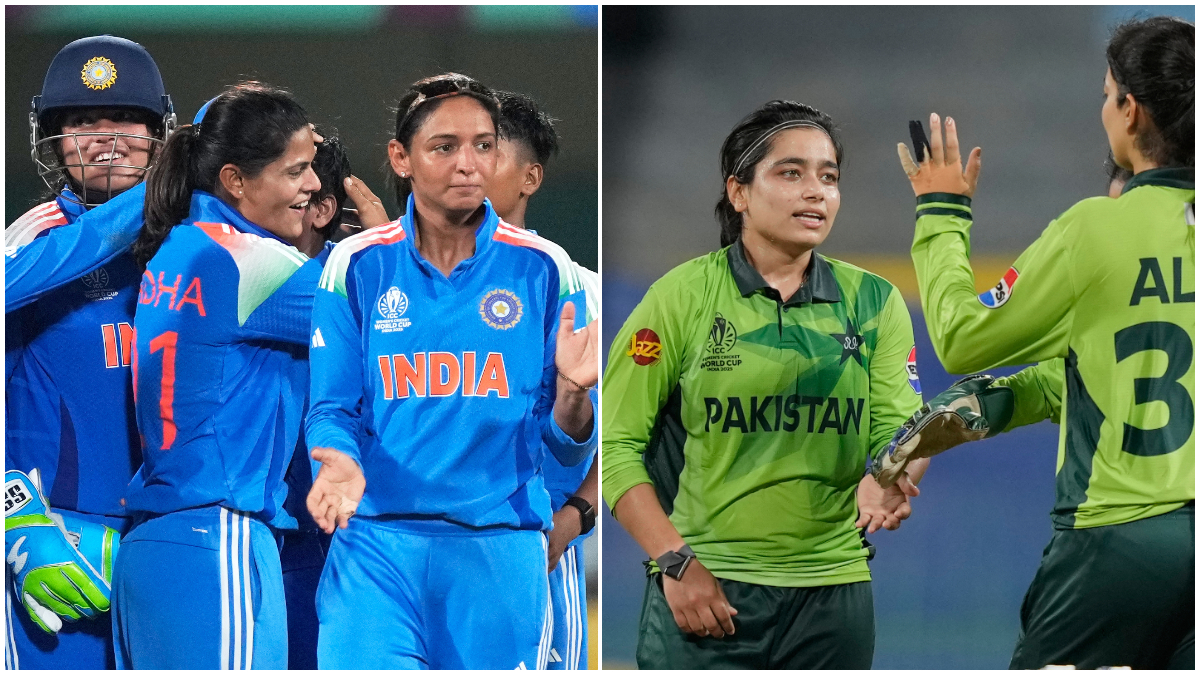Sport is built on rivalries. Whether it be in an individual discipline, or in a team environment. Talk about tennis in the 21st century, and the Roger Federer-Rafael Nadal match-ups will be spoken about. Federer-Novak Djokovic, and Djokovic-Nadal are worthy contenders to that throne, with Carlos Alcaraz and Jannik Sinner perhaps en route to taking it to a different dimension altogether in recent times.
In football, Argentina-Brazil is the obvious hit, although Germany-Netherlands, or England-Scotland, or USA-Mexico, or Algeria-Egypt have also historically housed plenty of drama and needle.
In cricket, there are several such rivalries. Some borne out of competing for the biggest prizes against each other, like India and Australia lately. Some having a more historical connotation, like Australia and England.
A complete mismatch in the women’s game
And then there is the India-Pakistan rivalry, borne out of a combination of everything. Geopolitics, history, proximity, on-field and off-field shenanigans – you name it, and chances are that an India-Pakistan game will have had some (if not all) of it.
But in the women’s game, this particular fixture has underwhelmed because these two teams are a mismatch on paper. They have played each other eleven times in women’s ODIs, and India have won the lot. Pakistan have won three women’s T20Is, but India have won the other 13.
In women’s ODIs, which is the flavour of the current cricketing season, India have won each game against Pakistan by a margin of either 80 runs or more, or by 6 wickets or more, further illustrating the gulf in quality that has existed and probably still exists.
This time, though, there seems to be an extra layer of intrigue. Some added spice, or as they would say in this part of the world, masala. And spoiler alert, that is not down to the cricket these teams have already played at this Women’s World Cup. Or their respective fortunes prior to it.
Quick Reads
View AllPolitical drama adds ‘masala’ to rivalry
Almost a week ago, the eyeballs of the world descended upon the India-Pakistan men’s Asia Cup final because, well, it was India and Pakistan, duh. That it was the third meeting between the pair – all, coincidentally on consecutive Sundays, by the way – mattered little.
The biggest continental prize was at stake. Bragging rights were up for grabs and for Pakistan, a chance to get the better of a side they have beaten only a handful of times in men’s T20I cricket. That, of course, did not materialise, with India blunting Pakistan’s initial bluster (both with bat and ball) and triumphing.
What also did not happen is a trophy presentation. Mohsin Naqvi, the chairman of the Asian Cricket Council (ACC), who is also Pakistan’s Interior Minister, was supposed to present said trophy and had proclaimed he would do so too. But India were not willing to accept it from him owing to strained relations between the two countries.
This followed India’s decision to not indulge in any handshakes with Pakistan players (including between the captains at the toss), which dates back to September 14, 2025 - the first time these sides played each other at the Asia Cup.
Also Read | ‘Whether you want to shake hands or not, let’s remain good ambassadors of the game’: Anjum Chopra
A lot of hue and cry was made of that as well, with Pakistan not conducting press conferences for a few days, and indulging in a back-and-forth that nearly saw the Men in Green pull out of the Asia Cup entirely, until they changed their mind, literally sat down in a room with match referee Andy Pycroft, and played against the UAE, which they were otherwise threatening not to.
Between these two events, a couple of fines were handed out. India captain Suryakumar Yadav received one for what was perceived to be a political statement, and Haris Rauf was also slapped with a fine for his gesture while fielding on the boundary rope against India on September 21, 2025. Sahibzada Farhan and his celebration after getting to fifty was also under the scanner but he was not penalized.
Sana Mir’s ‘Azad Kashmir’ remark builds tension ahead of Indo-Pak showdown
And if all of that was not enough, Sana Mir, former Pakistan women’s captain and a recent inductee into the ICC Hall of Fame, stirred the pot further during Pakistan’s opening game of the Women’s World Cup. She was commentating on the match when Natalia Pervaiz walked out to bat. While trying to convey where Pervaiz hails from, Mir used the term ‘Azad Kashmir’.
Mir’s usage of ‘Azad Kashmir’ has since created plenty of furore. That is the case because ‘Azad Kashmir’ refers to the part of the state of Jammu and Kashmir that legally belongs to India, but is under Pakistani occupation since 1947.
Player ‘from Azad Kashmir’ is this kind of commentary allowed?
— Lala (@FabulasGuy) October 2, 2025
And then they say keep politics away from sports. pic.twitter.com/1HSHjRWMZG
And while Mir may have construed the usage of that term acceptable, and while she may come up with what might be deemed a suitable explanation or justification, it cannot be denied that it was a controversial comment to make, especially days out from an India-Pakistan game. That too given the current political climate.
Intentionally or otherwise, that has created more of an edge around this India-Pakistan Women’s World Cup contest. In the men’s game, there have been instances where Pakistan have channeled their past disappointments against India, embraced the chaos and somehow gotten better.
But in the women’s game, there is very little (if any) precedent. If both teams play to potential, there is, as patronising as this may sound, not much that Pakistan can do. India have greater resources, they have greater experience, they have more match-winners and they are, bluntly and simply put, a much better cricketing outfit than Pakistan.
Pakistan, though, will hope, and as long as there is a chance, they will believe as well, despite what went down against Bangladesh. And especially with India knowing how drastic and dramatic the ramifications could be if they lose to Pakistan, that too at a World Cup India are expected to boss and perhaps last the distance in.
But who really knows what might unfold and what could unravel on Sunday. India-Pakistan, with a bit of an edge, with some needle, with more than a fair share of drama, is common in the men’s game. In the women’s version, there has never been anything quite like it, and this, subsequently and perhaps consequentially, just feels different. Because of, well, you know it by now.
Whether that is right or wrong is a debate that can rage on, across cultures, geographies, ideologies and time-zones. But it is what it is. And India and Pakistan, at the Women’s World Cup, have to find a way to adjust to it.


)

)
)
)
)
)
)
)
)



